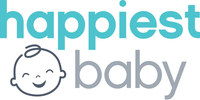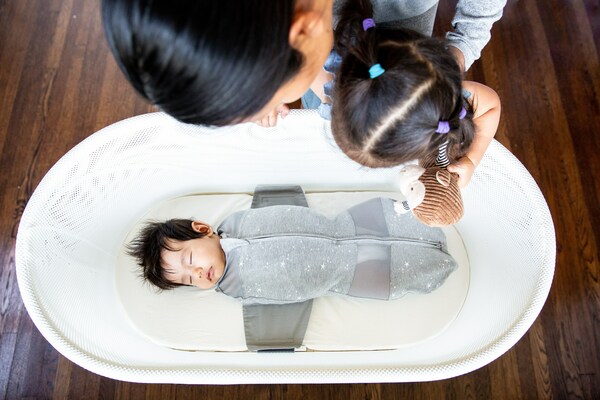SNOO is Granted FDA De Novo Approval For Keeping Sleeping Babies Safely Positioned on the Back
WASHINGTON, April 3, 2023 /PRNewswire/ -- Marking a significant advance in infant safety, the U.S. Food and Drug Administration (FDA) has given De Novo approval to Happiest Baby's SNOO Smart Sleeper. This is the first time the FDA has given De Novo approval to a product designed to keep sleeping babies safely positioned on the back. Babies who are positioned to sleep on the back are at a lower risk of SIDS.
Every year, 3,500 American babies die in their sleep from suffocation and unexplained causes including SIDS (Sudden Infant Death Syndrome). These deaths are collectively referred to as SUID (Sudden Unexpected Infant Death) and constitute the leading cause of death of healthy, full-term infants during the first year of life (90% of SUID cases occur in the first six months).
Tragically, the number of these deaths has continued unchanged at 3500 every year for over 20 years.
In the 1990s, doctors discovered that sleeping on the back dramatically reduced the incidence of SUID. Today, it is one of the key safe sleep recommendations of the American Academy of Pediatrics. The National Institutes of Health encourages back sleeping as "the single most effective action that parents and caregivers can take to lower a baby's risk of SIDS." And, the CDC advises that "babies who sleep on their backs are much less likely to die of SIDS than babies who sleep on their sides or stomachs."
Despite this universal recommendation, almost two-thirds of SUID deaths still occur when babies roll to, or are placed on, the side or stomach. SNOO is the first and only bed that facilitates back (supine) sleeping. The SNOO Sack safely swaddles babies and attaches to the bed, keeping them securely on the back throughout sleep.
SNOO is for use by babies under 6 months of age or until they have demonstrated they can consistently roll from stomach to back during sleep. In a study of 1,012 infants, SNOO was found to reduce unsafe stomach sleeping by 91.5%. However, SNOO has not directly demonstrated a reduction in the incidence of SIDS/SUID.
"As a pediatrician for over 40 years, I've witnessed far too many times the unbearable pain of parents who placed their baby in bed at night, only to find them lifeless in the morning," said Dr. Harvey Karp, co-founder and CEO of Happiest Baby, Inc. "Stomach sleeping leads to the tragic death of thousands of healthy infants every year. Yet, we routinely put babies in bed totally unsecured for 12 to 14 hours every day. Just as infant seats dramatically improve car safety, we hope to dramatically improve sleep safety by keeping babies on the back and reducing risky rolling."
On March 30, 2023, the FDA granted the De Novo application of Happiest Baby's SNOO Smart Sleeper:
"The Center for Devices and Radiological Health (CDRH) of the Food and Drug Administration (FDA) has completed its review of your De Novo request for classification of the SNOO Smart Sleeper, an over-the-counter device under 21 CFR Part 801 Subpart C with the following indications for use:
"The SNOO Smart Sleeper bassinet plus the SNOO Sleep Sack are jointly intended to facilitate a supine position during sleep. Infants who are placed in a supine sleep position are at lower risk of SIDS/SUID. The device is intended for home use by caregivers of infants from birth to 6 months of age, who are not yet able to roll over consistently.
"FDA concludes that this device should be classified into Class II. This order, therefore, classifies the SNOO Smart Sleeper, and substantially equivalent devices of this generic type, into Class II under the generic name infant supine sleep system.
"FDA identifies this generic type of device as:
"Infant supine sleep system. An infant supine sleep system is a device intended to facilitate a supine position during sleep for use in infants that are not yet able to roll over consistently. Infants placed in a supine sleep position are at lower risk of sudden infant death syndrome (SIDS) or sudden unexpected infant death (SUID)."
Click here for more information regarding the De Novo approval.


